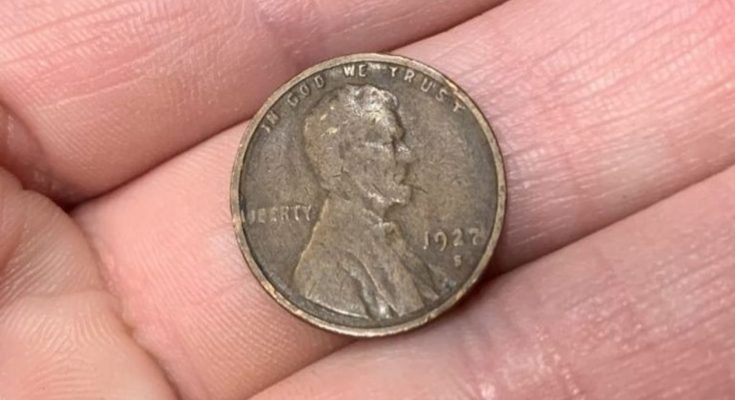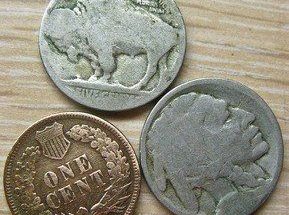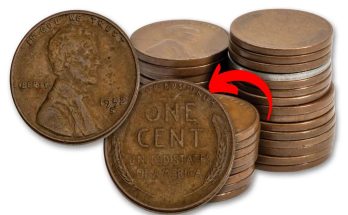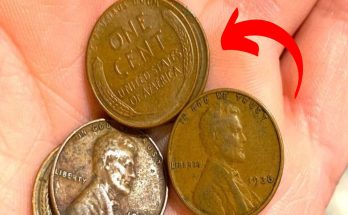In the world of rare coins, few tales are as captivating as the story of the 1943 copper Lincoln Wheat Penny. While most pennies are worth their face value of one cent, this particular coin has become a numismatic treasure, commanding an astounding $60 million. Its journey from a wartime error to the most valuable penny ever discovered is a fascinating blend of history, chance, and the enduring appeal of rare coins.
A Penny Born from Wartime Necessity
The story of the 1943 copper penny begins during World War II, a time when the United States faced significant resource shortages. Copper, essential for manufacturing ammunition and other military equipment, was in high demand. To conserve this critical material, the U.S. Mint decided to produce pennies using zinc-coated steel for the year 1943.
However, in an unexpected twist, a small number of copper planchets—blanks used for minting coins—were mistakenly left in the pressing machines. These planchets were from the previous year’s production and inadvertently made their way into the minting process. This error resulted in the creation of approximately ten copper pennies, making them some of the rarest coins in American history.
The Birth of a Rare Error
The 1943 copper pennies were an unintended outcome, never meant to enter circulation. Among the billions of steel pennies produced that year, the copper versions stood out not only for their material but also for their rarity. This unique blend of human error, industrial oversight, and wartime circumstances gave birth to one of the most sought-after coins in the numismatic world.
From Pocket Change to Priceless Treasure
The journey of the $60 million penny began in 1947 when a young boy in Philadelphia discovered the coin in his change. At the time, neither he nor his family realized the true significance of their find. The penny remained tucked away in a drawer for decades, its value hidden from the world.
It wasn’t until the 1980s that experts authenticated the coin, confirming it as one of the rare 1943 copper pennies. This authentication process involved rigorous testing to ensure the coin’s authenticity and condition, cementing its place as a genuine numismatic marvel.
What Makes It Worth $60 Million?
Several factors contribute to the extraordinary value of the 1943 copper penny:
- Extreme Rarity: With only about ten known examples, this coin is among the rarest in U.S. history.
- Historical Significance: Its creation during World War II ties it to a pivotal moment in American history.
- Exceptional Condition: The penny’s state of preservation is remarkable, having survived decades with minimal wear.
- Numismatic Demand: The coin’s rarity and historical context make it highly desirable among collectors.
In 2018, the penny made headlines when it sold at auction for a record-breaking $60 million. This sale not only highlighted its unparalleled value but also underscored the allure of historically significant coins.
A Coin Still in Circulation
One of the most intriguing aspects of the 1943 copper penny is that it remains legal tender. Although it’s unlikely anyone would spend it, the fact that this $60 million coin could theoretically be used as one cent adds a whimsical element to its story.
This detail serves as a poignant reminder of the stark contrast between a coin’s face value and its collector value, emphasizing the unique role of history and rarity in determining worth.
Impact on the Coin Collecting Community
The discovery and subsequent fame of the 1943 copper penny have profoundly influenced the coin collecting world. It has inspired countless enthusiasts to examine their loose change, hoping to uncover their own rare treasures.
Moreover, this penny has shifted the focus of collectors toward error coins—those created due to mistakes during the minting process. The idea that a simple oversight could result in a multi-million-dollar coin has added a layer of excitement and intrigue to the hobby.
Preservation and Legacy
Today, the known specimens of the 1943 copper penny are closely monitored by the numismatic community. Some are held in private collections, while others are displayed in museums, allowing the public to appreciate their historical and monetary significance.
These coins are not just collectibles; they are tangible pieces of history, offering a glimpse into the United States’ wartime efforts and the unintended outcomes of resource conservation.
Lessons from a Lucky Find
The story of the $60 million penny offers several valuable lessons:
- History Matters: The penny’s value is deeply tied to its historical context, showing how even ordinary objects can gain extraordinary significance.
- Preservation is Key: The coin’s remarkable condition played a critical role in its value, emphasizing the importance of protecting potential treasures.
- Chance Plays a Role: This penny’s discovery was entirely accidental, reminding us that remarkable finds can occur in the most unexpected circumstances.
The Future of the $60 Million Penny
As time goes on, the value of the 1943 copper penny is likely to continue rising. Its combination of rarity, historical significance, and fascinating origin story ensures its place as a cornerstone of American numismatics.
For collectors and history enthusiasts, the penny represents more than just a monetary value—it’s a testament to the enduring appeal of rare coins and the stories they carry.
Conclusion
The 1943 copper Lincoln Wheat Penny is more than just a coin; it’s a symbol of history, chance, and the remarkable stories hidden in everyday objects. From its accidental creation during World War II to its record-breaking auction, this penny has captured the imagination of collectors and history buffs alike.
While most of us will never own such a valuable piece, the tale of the $60 million penny reminds us that history is often found in the most unexpected places. It encourages us to look closely at the ordinary, for within it may lie something extraordinary.



